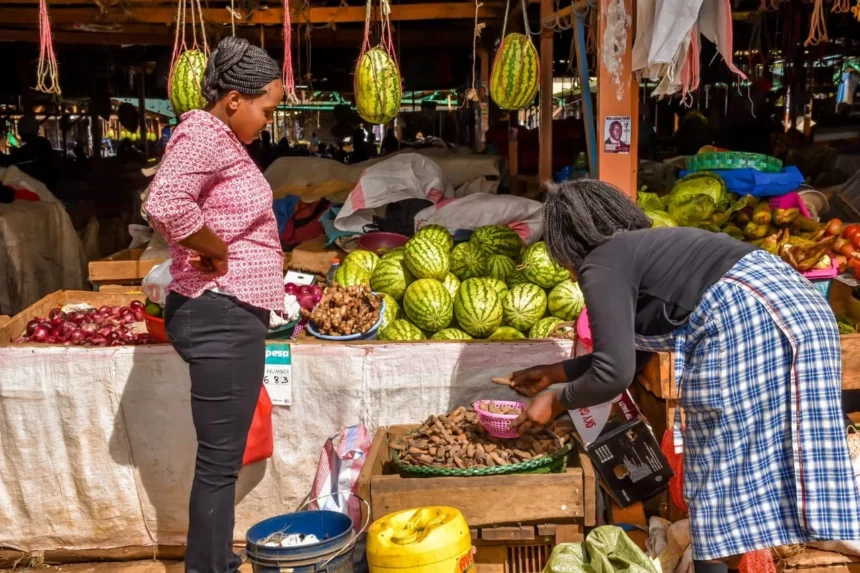Kenya Struggles with Economic Hardship: A Closer Look
Christine Naswa, a 40-year-old roadside vegetable vendor and mother of five in Nairobi, represents the harsh reality of the growing economic challenges in Kenya.
According to Naswa, “The economy is very poor right now. There is no money in Kenya.” She elaborated on the difficulties she faces in providing for her children due to the high cost of living and low profits from her business.
Despite being a prominent economic force in East Africa, Kenya is grappling with significant obstacles, especially after a tumultuous year. Approximately 40 per cent of Kenyans live in poverty, facing escalating expenses, a limited job market, and ongoing corruption scandals. The discontent among the population led to violent protests last June in response to new taxes introduced in President William Ruto’s finance bill. Although some taxes were reversed later on, many Kenyans are finding it increasingly challenging to make ends meet.
Credit: BBC
Kenya boasts a diverse economy with robust agriculture, services, and tourism sectors. However, its aspirations to attain middle-income status are hindered by substantial foreign debt. The country is now allocating more funds to interest payments for these loans than to crucial sectors like health and education.
Meanwhile, Kenyans feel that taxes are already burdensome, primarily affecting the small formal sector, which represents less than 20 per cent of jobs in the country.
A shopkeeper in Nairobi, who chose to remain anonymous due to fears of looting during protests, described the past year as the most challenging in their 36-year history of business. They highlighted a continuous increase in taxes without visible benefits following the new government’s assumption of power.
Analysts suggest that President Ruto has lost the initial support he garnered upon taking office in 2022. Patricia Rodrigues from Control Risks noted, “There’s a significant level of distrust and disillusionment with Ruto’s administration.” The decision to raise taxes was viewed as a betrayal of the promises made to improve the lives of ordinary citizens.
International organizations like the IMF argue that Kenya must enhance tax collection to meet the evolving needs of its 55 million population. However, the upcoming budget, slated for parliamentary discussion, aims to avoid imposing direct taxes that could incite further unrest.
Kwame Owino from the Institute for Economic Affairs emphasized, “We have reached the limit of how much tax Kenyans are willing to bear.” He highlighted the public’s skepticism towards using taxes to cover government inefficiencies and repay debts that are perceived as poorly utilized.
Some believe that addressing corruption could alleviate Kenya’s challenges, but Rodrigues pointed out that corruption is deeply ingrained in the system. As a result, some Kenyans are already looking towards the 2027 elections for a fresh start, although the cautious shopkeeper concluded, “Kenyans will always elect thieves.”








